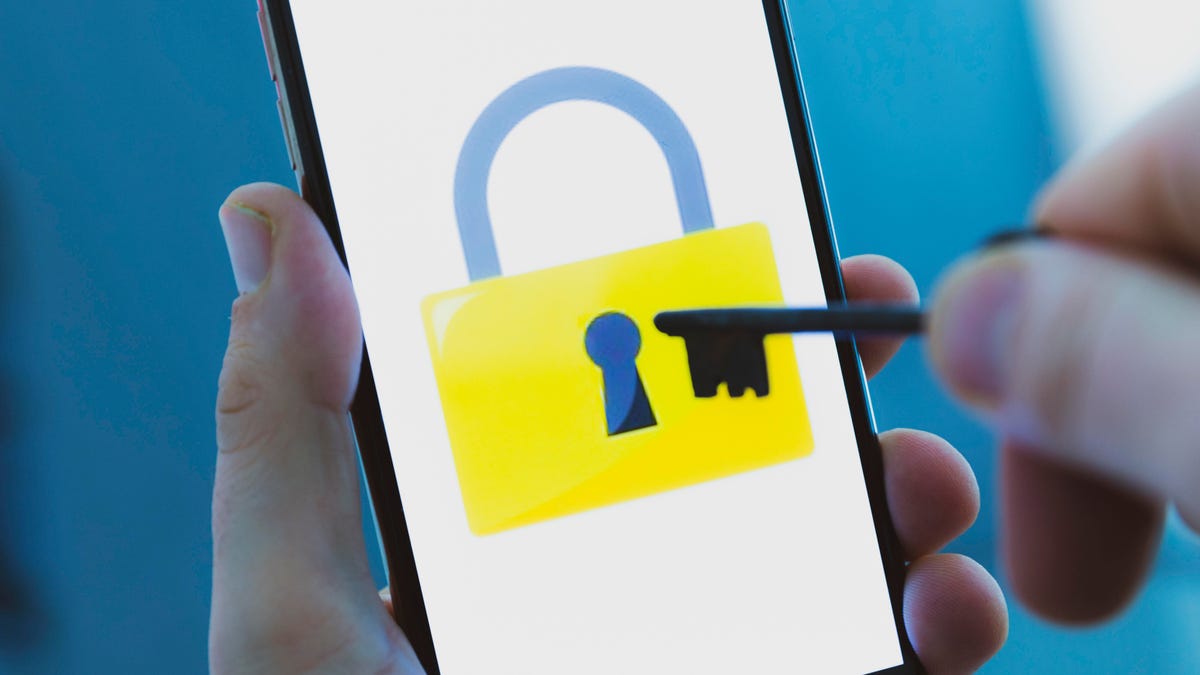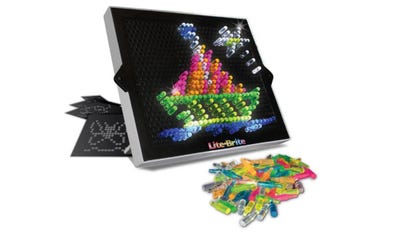Technologies
2022 Black Friday: Make Sure You Avoid All the Elaborate Scams
Scammers don’t take a break during the holidays. Learn what to watch for to protect yourself.

This story is part of Gift Guide, our year-round collection of the best gift ideas.
Black Friday arrives the day after Thanksgiving — which is Nov. 25 this year. It’ll be a day filled with deals on items like headphones and TVs, but with all that potential money flowing from customers to stores, cybercriminals are unfortunately looking to steal some of it.
Scammers work year round, but they turn up their efforts during the high-spending holiday season to exploit the spirit of giving.
The scams range far and wide — as retailers like Amazon, Best Buy and Walmart roll out deals over the holidays, fraudsters create elaborate websites to trick you into spending money on products you’ll never receive. You may receive text messages or emails claiming you’re eligible for a refund for an item you never purchased, just so thieves can get your credit card information. You might even be enticed into donating to a charity that provides homes for abandoned puppies — only to find out it doesn’t actually exist.
Scams come in all shapes and sizes, but there are always red flags to help spot them. Here’s what you need to know about Black Friday scams and how to avoid becoming a victim this holiday season.
For more about security and privacy this holiday season, check out how to protect yourself from identity theft, how to protect your phone app privacy, and the most common cryptocurrency scams.
Fake websites and fraudulent apps go ‘phishing’
In a phishing scheme, the goal is for hackers to get their hands on your personal information, like your credit card number, social security or account password. Pretending to be a large retail corporation, the fraudsters send out an official-looking email or text message, usually with a link to a fraudulent website designed to look just like a legitimate site.
Researchers at security firm Avanan discovered that hackers were sending out spoofed Amazon order notification emails. The email resembled your run-of-the-mill order confirmation, except that the order is false and the charge is significant.
Naturally, if you believe you’re being charged for a substantial amount, you would want to reach out to Amazon. But in this instance, if you use the link in the phishing email to get in contact, you’ll be redirected to a fake Amazon webpage with a false phone number to dial. If you call, the fraudsters won’t initially pick up, but they’ll soon call back, asking you to provide your card number, expiration date and CVV to «cancel the order.» And just like that, they’ve got your information.
These types of attacks are commonplace throughout the year, but expect a surge in messages claiming to be from Amazon, Best Buy, Walmart, Target or other large retailers during the holidays.
If you receive an email asking you to update your payment method or requesting other personal information, contact the company’s help desk to make sure the email is legit before you do anything else.
Other ways to identify a phishing email, according to the Federal Trade Commission and StaySafeOnline.org, include:
- The sender’s email address looks almost right but contains extra characters or misspellings.
- There are misspellings or bad grammar either in the subject line or anywhere in the body.
- They address you with generic terms («Mr.» or «Ms.» or «Dear Customer») instead of by name.
- The message warns that you need to take immediate action and asks you to click a link and enter personal details, especially payment information.
- The messages promise a refund, coupons or other freebies.
- The company logo in the email looks low-quality or just plain wrong.
Credit card skimming goes all-digital
You’ve seen it in movies. A hacker places an object over a card reader, disguised to look like part of the ATM, and then waits for people to swipe their cards. A day or week later, the thief takes the object — known as a skimmer — back and collects the mountain of stolen card information stored inside, which they can then use to make purchases, withdraw money and more.
Instead of using physical hardware to steal payment card numbers, hackers can insert malicious code directly on a website to do the same thing as traditional skimming, but with online payment information instead.
Regarding e-skimming incidents — sometimes called Magecart attacks after the name of the software used — Tim Mackey, principal security strategist for Synopsis, a digital security company, warns, «There isn’t an obvious way for the average person to be able to identify if or when a website has been compromised. The only potential tell-tale sign might be that the website itself doesn’t quite look ‘right.'»
Mackey suggests a few strategies you can can use to protect yourself:
- Don’t save your credit card information on retail sites.
- If possible use a third-party payment method like Apple Pay, Google Wallet or PayPal.
- Enable purchase alerts on all your credit cards.
- Disable international purchases on all credit cards.
- Only make purchases over your home network or cellular network, never on a public Wi-Fi where your payment could be intercepted.
Avoid the ‘Secret Sister’ gift exchange — it’s a pyramid scheme
Originating on Facebook, this sketchy gift exchange among internet strangers plays off the popular workplace practice of «Secret Santa,» a game where each person in a group buys a present for one other randomly selected group member, without the gift-giver revealing their identity.
Instead, in Secret Sister, it’s a pyramid scheme dressed up in holiday clothes, according to the Better Business Bureau. The «Secret Sister» exchange invitation promises you’ll receive about $360 worth of gifts after purchasing and mailing a $10 gift for someone else. A variation includes swapping bottles of wine. And there’s even «Secret Santa Dog,» in which you gift money to a «secret dog.»
Unfortunately, bad math hasn’t stopped this scam from resurfacing year after year. If you fall for it, you’ll probably be out 10 bucks when you don’t receive any gifts in return. You might lose personal details too, because the scam involves sending your name, email address and phone number to people you’ve never met in person.
The Better Business Bureau recommends you deal with any request to become a Secret Sister by ignoring it — do not give your personal details to online strangers. You can also report the invitation to Facebook or whichever social network you were approached on.
Your donations might be going to a ‘faux charity’
During the holiday season, it’s not uncommon to give back to the community. In fact, nonprofit organizations typically see an increase during the fall. The last three months of the year make up 36% of all charitable giving during the year, according to Blackbaud Institute, which creates fundraising applications.
Unfortunately, scammers take advantage of this generosity to make a bundle for themselves.
The way these charity fraud scams typically work are by impersonating other successful charities. And it’s no wonder they work: The scammers come up with real-sounding charity names, create credible websites, run successful social media campaigns — and they’re persistent.
Scammers typically call you using local phone numbers, which give you a false sense of security. However, it’s incredibly easy to spoof an area code. Next they’ll make their pitch, and it’ll be a good one. It will tug at your heart-strings, but they’ll never actually specify how they’ll help. And they may even claim that you’ve made a donation before, and suggest that you make another, and that if you do, it’ll be tax-deductible. And it’ll all be a lie.
If you get a call from a charity and sense some red flags, the AARP and FTC suggest that you do the following:
- Do your research. Use a watchdog like CharityWatch to get more information about a charity and learn how credible it is. Or use Google.
- Pay close attention to the charity name and website. False charities like to mimic other popular charities. If it seems too close in name to another, it might not be real.
- Keep track of your donations. Even if you accidentally donate to a scammer, you need to ensure that the donation isn’t recurring.
- Don’t give away all your personal information. Of course it’s normal to provide your card information, but don’t do the same with your Social Security number or bank account number.
- Don’t make a cash donation. Unless you’re certain about a charity’s credibility, don’t give away cash, gift cards, or cryptocurrency.
For any charitable donations that you make, you can also use the IRS tax-exempt organization search tool to make sure that the charity you’re contributing to is legitimate and that your gift can be deducted on your income tax return.
Find The Perfect Gift
Technologies
Samsung S26 Ultra’s Privacy Display Makes Shoulder Surfing a Thing of the Past
You can scroll on the subway in peace.

Picture this: You’re wedged into the middle seat while cruising at 38,000 feet, half watching the clouds and half scrolling through messages you probably should have answered already. The cabin lights are dimmed. The stranger rubbing shoulders next to you adjusts in their seat. Out of the corner of your eye, you notice their gaze flicker toward your screen.
That is a moment when the new Samsung S26 Ultra’s Privacy Display, announced during the company’s Galaxy Unpacked 2026, can quietly step in.
Read also: This One Killer Feature Sets the Samsung Galaxy S26 Ultra Apart From All Other Phones
Unlike old-fashioned screen protectors that darken your display permanently, the new feature is built directly into the Galaxy S26 Ultra (starting at $1,300) panel. It is not a film you stick on top; it’s a part of the hardware itself, working seamlessly with the software.
During the Unpacked event, Samsung brought out Miles Franklin from MilesAboveTech to demo the feature: to Miles, looking straight at the screen, everything remained crisp, bright and color-accurate. To anyone trying to peek from the side, like those of us watching the demo, the content fades into shadow. From this perspective, the screen might as well be off.
«It’s seriously one of the coolest features I’ve seen on a phone in years,» Franklin said while onstage at Unpacked.
How Privacy Display works
Under the hood, the technology relies on a combination of directional backlighting and an adaptive pixel layer that controls how light is emitted across angles. Traditional displays spread light broadly so multiple people can see the screen at once. The S26 Ultra does the opposite when privacy mode is active. It funnels light forward in a tighter beam, limiting lateral visibility without sacrificing clarity for the primary user.
Sensors play a role, too. Using the front-facing camera and ambient awareness algorithms, the device can recognize when additional faces appear within viewing range. If it senses someone hovering nearby or glancing from the side, it can automatically trigger enhanced privacy mode. You can also have the process automate when certain notifications pop up or when opening specific apps, like those for banking or social media.
Back on the plane, you can now continue typing. The stranger next to you adjusts again — perhaps curious, perhaps bored. It doesn’t matter. Your screen remains yours.
Technologies
This One Killer Feature Sets the Samsung Galaxy S26 Ultra Apart From All Other Phones
Commentary: Samsung needed to give us a reason to be excited about its latest flagship. It delivered.

There are so many reasons not to buy a new phone in 2026. For starters, our existing phones last longer than ever if we take care of them. Plus, most new phones are way too similar, not only to each other, but to last year’s batch. Finally, most of us won’t have our heads easily turned by yet another AI sales pitch.
But on Wednesday, at Samsung’s Galaxy Unpacked event in San Francisco, the company gave us a genuinely compelling reason to consider upgrading to its new top-end flagship, the Galaxy S26 Ultra. Its killer feature has nothing to do with AI (although Samsung is still beating that drum as loudly as every phone-maker out there).
In fact, it has nothing to do with software at all. Instead, it’s an innovation in hardware: Privacy Display, which offers pixel-level privacy that prevents anyone beside you from seeing what’s on your screen.
Privacy Display works in both portrait and landscape, with the pixels dispersing light in a way that will darken parts of the screen if you’re not looking at it straight on. You can choose whether to apply it to specific apps, to notifications or for when you’re inputting PINs or passwords. Access from Quick Settings makes it easy to turn on and off on the go, like when you suspect someone on the bus is reading over your shoulder, for example.
The reason the Privacy Display is such a compelling feature is that it’s simple to demonstrate, and it offers benefits that are easy to understand, said Ben Wood, CMO and chief analyst at CCS Insight. «Unlike a secondary-market privacy screen protector affixed to the phone’s display, it is not an ‘all or nothing’ solution,» he added.
On the surface, privacy doesn’t feel especially sexy as tech features go. But it is important to people. You only need to observe how central Apple has made privacy to its entire brand to see that people place significant value in technology they feel they can trust.
For Samsung, placing privacy front and center may be a winning strategy, giving its latest flagship a genuine edge over competitors that they can’t match simply by pushing out a software update. Privacy Display also elevates the Ultra even within Samsung’s own wide stable of phones, and it goes some way (although perhaps not all the way) toward justifying that $1,300 price tag.
«At face value, the Galaxy S26 Series devices differ little from [Samsung’s] predecessors launched just over a year ago,» Wood said. «Without this capability, the Galaxy S26 Ultra would have been an extremely tough sell.»
But Samsung may want to capitalize on this competitive advantage while it can. «I also expect this to become a benchmark feature over the next few years on all premium smartphones and other products, such as laptops,» Wood said.
That’s something to look forward to if you plan to upgrade in 2027 or beyond, but for now this is an Ultra exclusive, so you’ll need to be feeling flush if you plan to be a Privacy Display early adopter.
Technologies
Galaxy Unpacked 2026 Live Updates: Samsung’s S26 Reveal Is Here
-

 Technologies3 года ago
Technologies3 года agoTech Companies Need to Be Held Accountable for Security, Experts Say
-

 Technologies3 года ago
Technologies3 года agoBest Handheld Game Console in 2023
-

 Technologies3 года ago
Technologies3 года agoTighten Up Your VR Game With the Best Head Straps for Quest 2
-

 Technologies4 года ago
Technologies4 года agoBlack Friday 2021: The best deals on TVs, headphones, kitchenware, and more
-

 Technologies5 лет ago
Technologies5 лет agoGoogle to require vaccinations as Silicon Valley rethinks return-to-office policies
-

 Technologies5 лет ago
Technologies5 лет agoVerum, Wickr and Threema: next generation secured messengers
-

 Technologies4 года ago
Technologies4 года agoOlivia Harlan Dekker for Verum Messenger
-

 Technologies4 года ago
Technologies4 года agoiPhone 13 event: How to watch Apple’s big announcement tomorrow









































































































